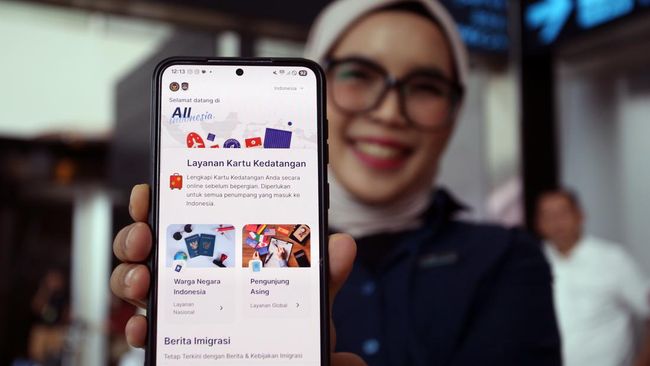Indonesia has officially become the first country in the world to deploy a biometric “seamless corridor” immigration system, allowing travelers to pass through border checks without stopping. This breakthrough technology, powered by AI-driven biometric solutions from Amadeus, marks a major milestone in the future of global travel.
The initiative is part of the government’s broader “All Indonesia” digital transformation program, designed to simplify immigration procedures for international arrivals and improve overall airport efficiency. Two seamless corridors are currently being installed at Soekarno-Hatta International Airport in Jakarta, while a third corridor is being prepared for Juanda International Airport in Surabaya.
Faster, Document-Free Border Checks
In its initial phase, the seamless corridor will prioritize senior travelers and passengers with special needs, who can pre-register through the All Indonesia app. According to Rudy Daniello, a senior executive at Amadeus, the combination of digital identity and biometric technology has finally made a fully contactless, secure, and queue-free border experience possible.
“Seamless Corridor is the ‘crown jewel’ of our portfolio for frictionless travel. With innovations in digital identity and biometrics across major airport touchpoints, airlines, airports, and governments can now offer a streamlined and secure experience—free from document checks, queues, and physical barriers,” Daniello said, as quoted on the official Amadeus website.
How the Seamless Corridor Works
The system relies on three key steps:
- Advance Data Submission – Travelers share their passport details ahead of arrival.
- Pre-Arrival Background Checks – Security screening is completed before they reach the airport.
- Final Biometric Authentication – Travelers are verified “in motion” as they walk through the biometric corridor.
This approach eliminates the need to stop at immigration counters. Instead, AI-powered cameras and sensors confirm the passenger’s identity while they continue moving.
Built on Earlier Success
Although this technology is new at a global scale, Indonesia has prior experience using similar systems. Biometric processing was previously implemented to facilitate the arrival of Indonesian pilgrims traveling to Saudi Arabia for Hajj and Umrah. Each year, an estimated 220,000 pilgrims travel between the two countries. During earlier trials, the biometric corridor processed more than 30 border crossings per minute and successfully served over 50,000 passengers.
Indonesia’s Directorate General of Immigration has now become the first global authority to implement biometric corridors at scale, transforming immigration from a traditionally slow, queue-heavy process into a fast, seamless, and future-ready travel experience.
Source: Amadeus, CNN Indonesia
Photo Credit: (ANTARA FOTO/Muhammad Iqbal)


